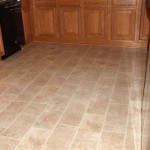Laying Vinyl Flooring: A Comprehensive Guide to Construction Work
Transform your living space with the elegance and durability of vinyl flooring. From preparation to installation and finishing touches, this comprehensive guide will lead you through the essential aspects of laying vinyl flooring with confidence.
1. Preparation: Laying the Foundation
Before embarking on the installation process, proper preparation is crucial to ensure a successful outcome. Start by clearing the floor of any furniture, rugs, or obstacles.
Inspect the subfloor for any unevenness, damage, or moisture. If necessary, level the subfloor using a self-leveling compound or plywood underlayment.
2. Acclimation: Adapting to the Environment
Allow the vinyl flooring to acclimate to the room's temperature and humidity for at least 24 hours before installation. This process ensures that the flooring expands or contracts minimally after installation, preventing buckling or warping.
3. Installation Options: Adhesive vs. Floating
Vinyl flooring offers two installation methods: adhesive and floating. Adhesive installation involves directly bonding the flooring to the subfloor using a specialized adhesive, providing a permanent and stable bond.
Floating installation utilizes a click-locking system that connects the planks without adhesives. This method is faster and allows for easier replacement if necessary.
4. Adhesive Installation: A Step-by-Step Guide
1. Apply a thin layer of adhesive to the subfloor using a notched trowel.
2. Place the first plank in a corner and press it firmly into the adhesive.
3. Continue laying the planks, aligning them carefully and pressing them down to ensure a secure bond.
4. Cut the planks to fit the edges and corners using a utility knife.
5. Allow the adhesive to cure for the recommended time before using the floor.
5. Floating Installation: A Simpler Approach
1. Connect the first two planks using the click-locking system.
2. Continue adding planks, angling each new plank slightly before locking it into place.
3. Use a tapping block and hammer to gently tap the planks together to ensure a secure connection.
4. Cut the planks to fit the edges and around fixtures using a circular saw.
5. Install transition molding or baseboards to finish the installation.
6. Finishing Touches: Protecting and Enhancing
After installation, protect and enhance the vinyl flooring with these essential steps:
· Install transition moldings to create a smooth transition between vinyl flooring and other surfaces.
· Seal around edges, corners, and fixtures using a clear silicone caulk to prevent moisture penetration.
· Clean the flooring regularly using a vinyl floor cleaner and a microfiber mop to maintain its pristine appearance.
Conclusion: A Satisfying Transformation
Laying vinyl flooring requires attention to detail and a systematic approach. By following these comprehensive guidelines, you can transform your space with a durable, elegant, and easy-to-care-for floor that will enhance your home's aesthetic and functionality for years to come.

Vinyl Tile Installation A Comprehensive Guide Gc Flooring Pros

Navigating Flooring In Construction Work A Comprehensive Guide To Types And Considerations Vertex

A Complete Guide How To Stagger Vinyl Plank Flooring Whole Cabinet Supply

How To Install Vinyl Plank Flooring The Home

Installing Vinyl Plank Flooring For Beginners Anika S Diy Life

How To Install Diffe Vinyl Floors Angling Push Down Installation Tutorial For Beginners Tarkett

A Beginner S Guide To Installing Vinyl Plank Flooring Dumpsters Com

Lvp Flooring Installation How To Install Luxury Vinyl Plank In A Basement Diy

Installing Vinyl Plank Flooring For Beginners Anika S Diy Life

How To Install Luxury Vinyl Plank Flooring For Beginners Flooret Lvp Review Builds By Maz
See Also







